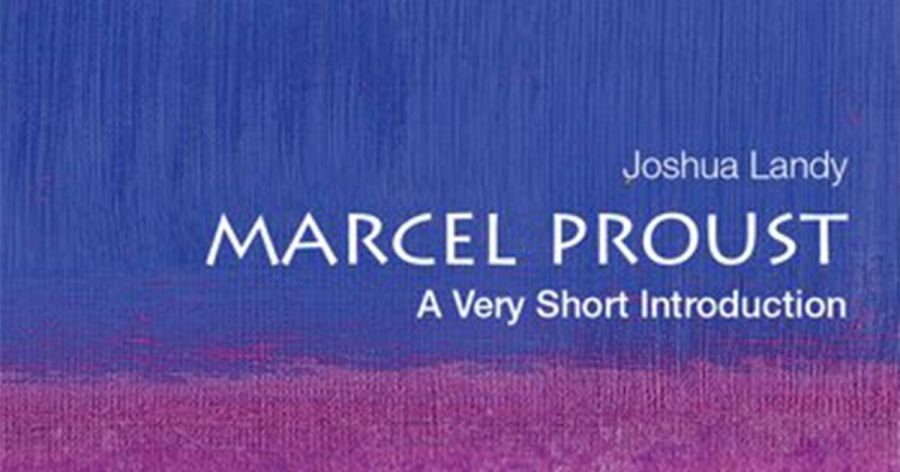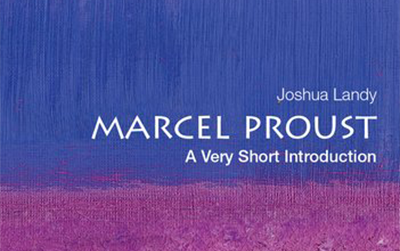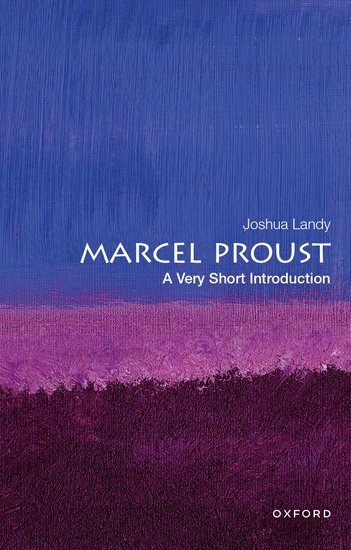
- Free Article: No
- Contents Category: Literary Studies
- Review Article: Yes
- Article Title: At the Proustian gym
- Article Subtitle: A highly readable guide to Proust
- Online Only: No
- Custom Highlight Text:
For many, Marcel Proust (1871–1922) is the supreme European writer of the twentieth century. His seven-volume masterpiece, À la recherche du temps perdu (1913–27), is astonishing in the range of its themes and ideas. It is a philosophical novel about time, memory, imagination, and art; a psychological novel about sexuality, love, and jealousy; a sociological novel about how the social world is organised into groups and how our identities are formed by those groups; a political novel containing acute analyses of class perceptions, social mobility, racism, homophobia, and war; and a comic novel of manners, character, and language. In Search of Lost Time (as it is now commonly translated) is also a boldly experimental novel, quite unlike what contemporary readers understood to be a work of fiction. Proust is a key figure in the development of modernism: he redefined the boundaries of fiction, breaking open the French heritage of realism by shifting the focus of the novel from ‘the real’ to the creative mind of the novelist.
- Featured Image (400px * 250px):

- Alt Tag (Featured Image): Brian Nelson reviews ‘Marcel Proust: A very short introduction’ by Joshua Landy
- Book 1 Title: Marcel Proust
- Book 1 Subtitle: A very short introduction
- Book 1 Biblio: Oxford University Press, £8.99 pb, 170 pp
- Book 1 Cover Small (400 x 600):

- Book 1 Cover (800 x 1200):

- Book 1 Readings Link: https://www.readings.com.au/product/9780197586556/marcel-proust-a-very-short-introduction--joshua-landy--2024--9780197586556#rac:jokjjzr6ly9m
On first encounter, the Search reads like an autobiography. There is an ‘I’, a narrator, who is telling the story of his life since childhood, adding analytical comments as he goes. But although there are autobiographical elements in the novel, they have been transformed and a world created out of them that is imaginary; the Search is a work of fiction.
The most crucial aspect of the novel is temporal structure. The narrative ‘I’ is a double ‘I’, moving fluidly between the present of the middle-aged narrator and the past of his younger self, building a brilliantly orchestrated symphonic structure as the narrator describes his experiences: his failed attempts to find satisfaction in love and friendship, his ultimately successful desire to enter high society, his unfulfilled ambition to be a writer. These shifting perspectives continue until the narrator and his younger self meet up, so to speak, in the novel’s final volume, in which the narrator finds what he has been searching for all along. He recognises the richness of his own life, rediscovers his vocation, and identifies the subject matter of the novel he will write: himself.
I understood that all the raw materials for a literary work were in my past life; I understood that they had come to me, in frivolous pleasures, in idleness, in tenderness, in sorrow, that they had been stored within me without my divining their purpose, even their continued existence …
The Search ends with the narrator-protagonist preparing to embark on, presumably, the novel we have just read.
Joshua Landy’s Marcel Proust: A very short introduction (published in hardback in 2023 as The World According to Proust) is a highly readable guide to Proust. He ranges across the vast terrain of the Search in an impressively sprightly way, showing how it is about the ways in which personal identity is formed and why the questions raised in Proust’s exploration of identity are important for all of us. He has chapters on what memory tells us about our inner world; what we can know about the world, other people, and ourselves; how we achieve a sense of belonging in the world; how we can find genuine connection with other human beings; how sexual orientation affects questions of connection and identity; how art can transform our lives.
One chapter shows how prominent formal features of the Search – sheer length, a narrator who changes his mind and says things the novel proves false, the famously intricate sentences – involve and test us in ways that a philosophical essay couldn’t. Reading the Search, he says, is like ‘going to the Proustian gym’. Landy rightly points to the marriage of style and meaning. The syntax of Proust’s sentences expresses the complex rhythms of a sensibility, the conflicts and convolutions of a mind that forms the framework – indeed the subject matter – of the narrative. But despite this complexity, the novel is not difficult; the ‘workout’ is pleasurable, not arduous. Proust’s sentences are elaborately constructed, but they are beautifully precise and balanced. Moreover, the narrator is extremely companionable: he speaks to us in a voice that could hardly be more engaging.
Landy writes with a great deal of wit. Unfortunately, given his desire to show how reading Proust can be ‘a joyous experience’, his strict word limit prevents him from addressing a vital aspect of Proust: humour. Comedy and irony suffuse Proust’s narrative. There is the comedy of love (the way Swann’s jealous imaginings vis-à-vis Odette, for example, lead him into a hall-of-mirrors world of distortion and delusion), the comedy of language (as a medium in which personal and social identities are created and expressed; Proust is a brilliant caricaturist of speech); the comedy of manners (the often ludicrous forms assumed by social pretension), the comedy of character (the novel’s unforgettable parade of snobs, eccentrics, and buffoons). The narrator’s younger self (named ‘Marcel’ on two occasions) is himself, in part, a comic character. This relates to the double vision of the narrative. The critic Roger Shattuck put it well when he remarked that Marcel and the narrator form a contrasting pair like comic and straight man. Marcel is a comic figure in that he continually misreads people and situations. The older, wiser narrator, as he looks back on his younger self, chronicles the tantalising gaps – a comedy of errors – between desire and reality, illusion and truth.
Landy’s book will appeal to a broad audience – new readers and confirmed devotees alike. It is both entertaining and erudite (the ‘references’ provide many useful pointers to previous Proust criticism). It will help readers to see the labels often attached to Proust (‘difficult’, ‘daunting’, etc.) for the stereotypes they are; and it will encourage them to explore for themselves the inexhaustible riches of Proust’s work.


Comments powered by CComment